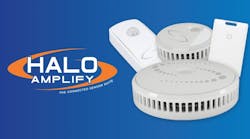A Must Read for ALL Dealers
Q: While some of us have tried to alert all of our customers about the effects of VoIP, it seems not everyone is up to speed. Some dealers have seen failed alarms, while others report massive numbers of failed test signals. Are we any closer to having this situation properly addressed?
A: Yes. Through your question and past coverage in this column of VoIP, hopefully dealers are becoming more aware of the problem. As far as attempting to make these systems work properly, the industry is communicating with the three groups of VoIP providers: the telephone companies; the cable companies; and the so-called non-facilities-based providers that use the public Internet for VoIP, such as Vonage, Verizon’s VoiceWing and AT&T’s CallVantage.
By the time you read this, the first Interoperability Test at the CableLabs facility will have been conducted. CableLabs is a not-for-profit laboratory solely dedicated to cable television technology. The major alarm equipment manufacturers will have tested the known dialer formats at that time against currently deployed cable VoIP technology.
Another area needing to be addressed is the regulatory front. The Alarm Industry Communications Committee (AICC) has filed Comments In the Matter of E911 Requirements for IP-Enabled Service Providers. This was an opportunity for the alarm industry to weigh in with our concerns as the FCC and the VoIP providers figure out how to give reliable 911 service.
In its comments, the AICC makes the FCC aware that “central station alarm operations are dependent upon reliable and uninterrupted telecommunications service to monitor the alarm systems of their business and residential customers, and to report potential emergency situations to the appropriate public safety agencies. Accordingly, central station alarm operations were developed to work efficiently and effectively with the Public Switched Telephone Network (PSTN).”
It goes on to ask the FCC to mandate that “VoIP providers be required to ensure not to interfere with other public safety mechanisms employed by subscribers, such as central station alarm services.” At a minimum, VoIP providers should be required to determine whether a new VoIP customer has alarm service and if so, notify and work with the alarm company before the customer’s service is changed, in order to ensure that alarm service is not degraded, interrupted or terminated.
The AICC alerts the FCC to the danger of VoIP by stating, “When a VoIP provider fails to connect the customer’s alarm panel to the new VoIP wiring and/or fails to provide an effective communication path to the alarm central station, the customer’s alarm protection has been terminated. Unfortunately, in most cases customers will not realize this until an emergency situation occurs and their alarm system does not work.”
Finally, the CSAA Standards Committee has filed for and is working on a standard that will give a template for the future of VoIP in the alarm industry. If this standard is used effectively, it will give ground rules to the VoIP providers and a test method to ensure that alarm systems and VoIP offerings will be compatible.
Louis T. Fiore is a consultant from Sparta, NJ. He is Past President of CSAA (1997-1999) and President of L.T. Fiore, Inc. His practice includes the use of wireless and the Internet for alarm monitoring, as well as regulatory issues for security systems in general. He also serves as Chairman of Central Station Alarm Association’s (CSAA) Alarm Industry Communications Committee (AICC) and Standards Committee. He is the current chairman of the SIA’s Security Industry Standards Council (SISC) and a long-time member of the Supervising Station Committee of NFPA 72. Send your questions to [email protected].

